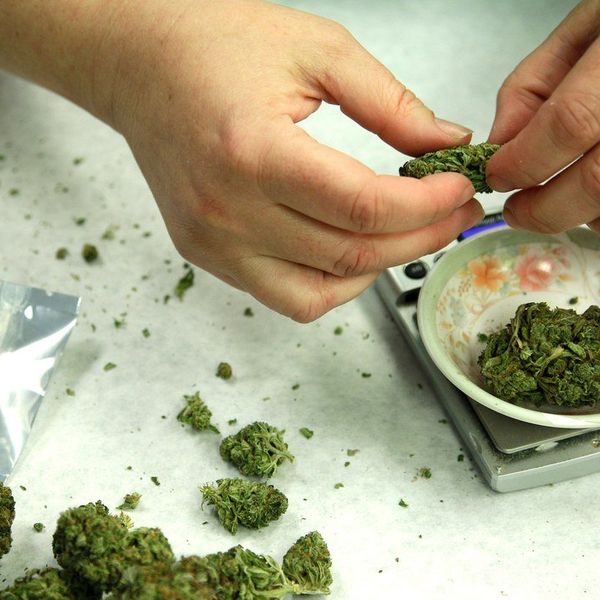Picture yourself as a kid on a steaming hot summer day in the middle of July. Your body is baking after a long day at the ball field, and to cool yourself off, you decide to turn on the hose. You are finally relieved by the fresh, bone-chilling water running down your back when a friend suddenly calls you to come swim at his house. Excitement fills your body and, absentmindedly, you forget to shut off the hose. When you return some hours later, you realize that you had left the hose on the sidewalk gushing and wasting gallons of water; water that could have been used in a plethora of more meaningful, substantive ways.
The U.S. government, when it comes to the amount of money that has been wasted on marijuana policy, is that negligent little boy on a sizzling summer day who forgot to turn off the hose. Instead of a slight increase in this month's water bill, however, the U.S. is wasting nearly $20 billion per year on marijuana prohibition. While $20 billion is modest in terms of the cumulative government budget, it is far too high a price to pay for a drug that does little to harm non-users (and even to most users). It is time for government officials, who are not young and reckless children despite popular sentiment, to turn off the hose.
The easiest way to stymie the flood of taxpayer dollars into a seemingly pointless operation is through the legalization process. Legalization of marijuana would not only drastically decrease the amount of money appropriated to national and local marijuana prevention, but would also allow the government to employ a top-down approach to cannabis sales.
In an interview with the Huffington Post, Alison Holcomb, the criminal justice director of the American Civil Liberties Union of Washington, stated that individual states like Colorado and Washington that have already legalized marijuana have seen auspicious results in terms of casework and cost reduction.
"Just within a week after the vote, county prosecutors across the state started dismissing misdemeanor marijuana possession cases that were pending at the time, and there were over 220 cases that were dismissed," she said. "So that was a very tangible example of the criminal justice costs that we were already saving, even before the actual initiative went into effect."
Furthermore, according to Allen Wastler, an economics reporter for CNN, "the government would save $7.7 billion a year if it didn't have to spend money policing and prosecuting marijuana activity. Then, if the feds taxed marijuana at a rate comparable to cigarettes and booze, another $6.2 billion would come rolling in."
The numbers are promising, so what is the hold up? Is it fear? Are Americans afraid that the legalization of marijuana would yield higher rates of marijuana related crime such as DWIs? Maybe, but because cannabis is vastly accessible now, experts believe that the rate of marijuana related injuries would not increase at a substantially.
Likewise, some critics argue that marijuana should remain illegal due to its degrading mental and physical side effects. However, this argument is open to a multitude of retaliatory claims citing the negative consequences of tobacco and alcohol, which are legal. If cannabis should only be illegal due to its harmful physical and mental effects, then anti-marijuana advocates should also be lobbying for tobacco and alcohol prohibitions.
The road to legalizing cannabis is going to be a grueling journey for House democrats, who have continued to receive staunch opposition from Republicans.
In February, Rep. Jared Polis (D-Colo.) proposed the Regulate Marijuana Like Alcohol Act, which would remove marijuana from the Controlled Substance Act list. Polis stated that "While President Obama and the Justice Department have allowed the will of voters in states like Colorado and 22 other jurisdictions to move forward, small business owners, medical marijuana patients, and others who follow state laws still live with the fear that a new administration -- or this one -- could reverse course and turn them into criminals."
With individual states inching towards legalization, the government has been able to slowly turn off the hose. While the gushing water has not been reduced to a slow trickle, it is diminishing slightly. Hopefully this issue gets resolved before the flooding expands.





















